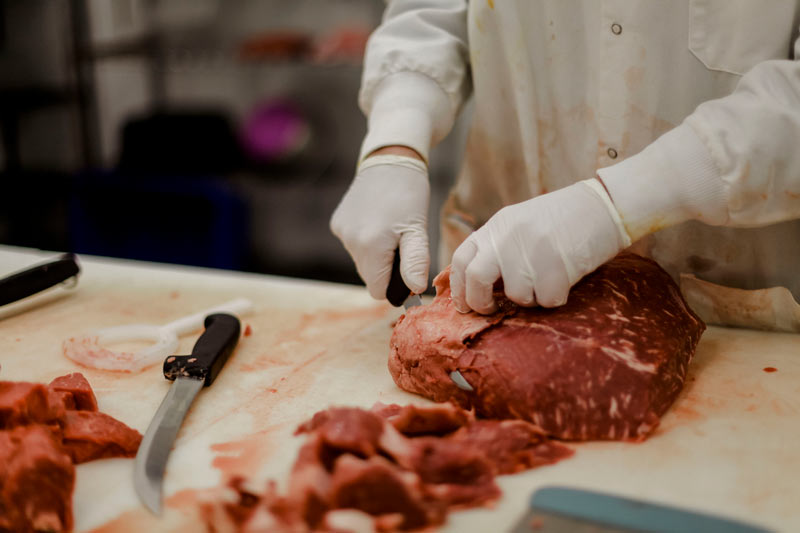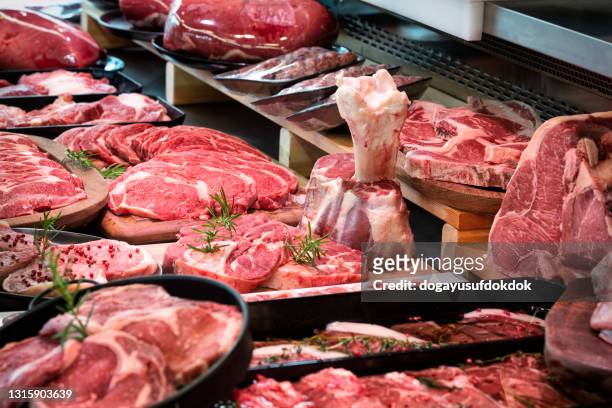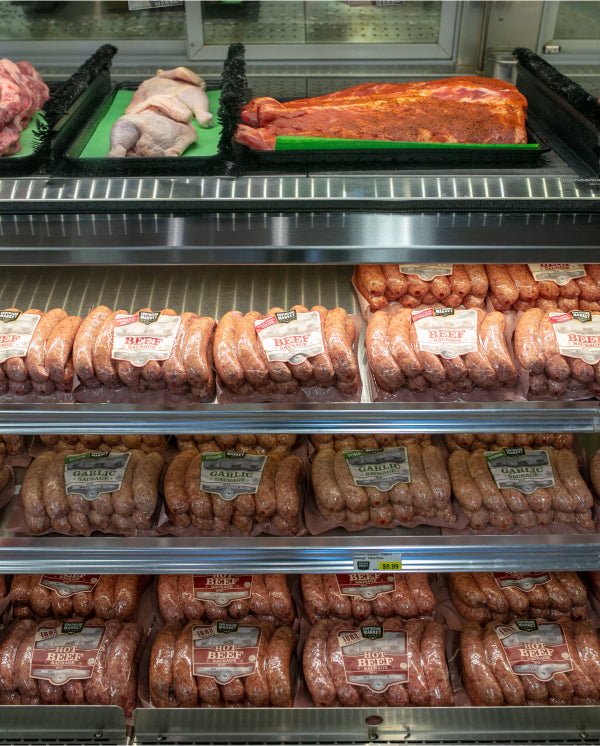Why Picking a Meat Market Over a Supermarket Makes a Distinction in Taste and Quality
The difference in between purchasing meat from a specific market versus a grocery store commonly depends on the nuanced layers of taste and high quality. Meat markets typically highlight quality, sourcing their items from local ranches, which not just enhances flavor yet also fosters sustainable techniques. Furthermore, the experience of competent butchers can give invaluable understandings right into picking the right cuts for different cooking applications, ensuring a more tailored experience. The implications of these choices extend past plain flavor; they raise crucial concerns about the broader impact on consumer behaviors and neighborhood economic situations. What else could be at risk?

Freshness of Products
Prioritizing quality is a significant benefit of choosing a meat market over a grocery store. Meat markets normally provide items that are sourced locally and refined with a focus on keeping ideal quality. Unlike supermarkets, where meat might be stored for prolonged periods, meat markets frequently obtain daily shipments, ensuring that their supply is consistently renewed with top quality cuts.
In addition, meat markets typically have a much more efficient supply chain, reducing the moment from farm to table. This fast turn over not only improves the taste and appearance of the meat but likewise gives customers with guarantee pertaining to the quality of the products they acquire. The skilled butchers at meat markets can likewise give valuable insights into the quality of their offerings, as they are thoroughly aware of their providers and the conditions under which the meat is managed.
Furthermore, meat markets frequently prioritize whole cuts and specialized things that might not be available in supermarkets, allowing consumers to check out a range of choices that are fresher and extra flavorful. This commitment to freshness ultimately adds to an exceptional culinary experience, making meat markets an appealing option for critical customers.
Sourcing and Sustainability
The dedication to top quality at meat markets expands past quality to include sourcing and sustainability practices. Unlike large grocery stores, which usually count on mass-produced items, meat markets prioritize regional and ethical sourcing. This approach not only supports neighborhood farmers and breeders however also lowers the carbon impact related to carrying meat over long ranges.

Additionally, meat markets usually offer a variety of cuts and specialty meats that show the periods and neighborhood cooking traditions. This commitment to sustainability promotes a connection between consumers and their food resources, advertising openness pertaining to the beginnings of the meat they acquire. By selecting meat markets, customers can take pleasure in not just improved tastes however likewise the contentment of sustaining liable and lasting farming methods.
Professional Understanding and Guidance
While buying at a meat market, customers take advantage of the expert knowledge and individualized suggestions supplied by skilled butchers. These specialists are commonly trained and have substantial experience in the meat market, allowing them to provide understandings that go much beyond the basics located in a grocery store. They can direct customers on selecting the appropriate cuts for certain recipes additional reading or occasions, making certain optimum flavor and inflammation.

Furthermore, butchers typically put in the time to engage with consumers, addressing concerns and sharing suggestions that are not easily offered in a supermarket setting. This level of customized solution cultivates a deeper link between clients and their food, inevitably boosting the total culinary experience. By picking a meat market, customers get access to a wealth of expertise that can significantly impact their food preparation and pleasure of meat.
Flavor Accounts and Selection
When exploring the offerings at a meat market, customers are commonly compensated with a diverse array of flavor accounts and cuts that are commonly inaccessible in grocery stores. Unlike mass-produced meat items, which usually focus on harmony, meat markets curate their selections based upon high quality and regional specificity. This leads to a variety of meats that show one-of-a-kind preferences, appearances, and prep work approaches.

Seasonal and locally sourced options even more improve the experience, as these items commonly have premium quality and taste. The knowledgeable butchers at meat markets can direct clients on the most effective cuts for certain recipes, making certain that each selection lines up with preferred taste accounts and food preparation techniques. Overall, the range and top quality located in meat markets not just elevate the culinary experience yet additionally urge expedition and trial and error in home cooking.
Sustaining Neighborhood Economic Situations
Selecting a meat market not only enhances culinary experiences with diverse taste profiles yet also plays a substantial function in supporting local economic climates (bagley meat market edwardsville il). They are much more likely to engage with organizations that source their items from regional ranches and producers when customers choose for meat markets over larger grocery store chains. This practice fosters a lasting farming atmosphere, urging farmers to maintain standard methods that produce top notch meats
Moreover, meat markets typically use neighborhood personnel, which contributes to task development and retention within the community. The economic influence expands past the instant organization; cash invested at local facilities tends to circulate within the community, benefiting numerous fields such as transport, retail, and marketing. This regional investment helps improve the general economic health of the location.
Additionally, meat markets typically emphasize openness and moral sourcing practices, which resonate with consumers progressively worried regarding the beginnings of their food. web By picking to buy from these establishments, clients not just appreciate premium items but additionally verify their commitment to supporting their neighborhood's economic situation. Fundamentally, picking a meat market is a purposeful selection that nurtures both personal satisfaction and broader financial vigor.
Verdict
Picking a meat market over a grocery store substantially impacts preference and high quality. The emphasis on freshness, sustainable sourcing, and expert knowledge adds to find more premium culinary experiences. Accessibility to unique cuts and varied taste profiles improves dish prep work and pleasure. In addition, sustaining neighborhood economies fosters community connections and advertises sustainable farming practices. In general, the advantages of selecting a meat market extend beyond individual preferences, influencing wider ecological and economic aspects while elevating the art of food preparation.
Unlike supermarkets, where meat might be stored for prolonged periods, meat markets frequently get day-to-day deliveries, making certain that their stock is regularly restored with premium cuts.
The competent butchers at meat markets can likewise offer beneficial insights right into the quality of their offerings, as they are totally familiar with their vendors and the problems under which the meat is dealt with.
Additionally, meat markets typically use a variety of cuts and specialized meats that reflect the periods and neighborhood culinary traditions. By picking a meat market, customers gain accessibility to a wealth of knowledge that can substantially influence their food preparation and satisfaction of meat.
Unlike mass-produced meat items, which often focus on uniformity, meat markets curate their options based on top quality and local specificity.